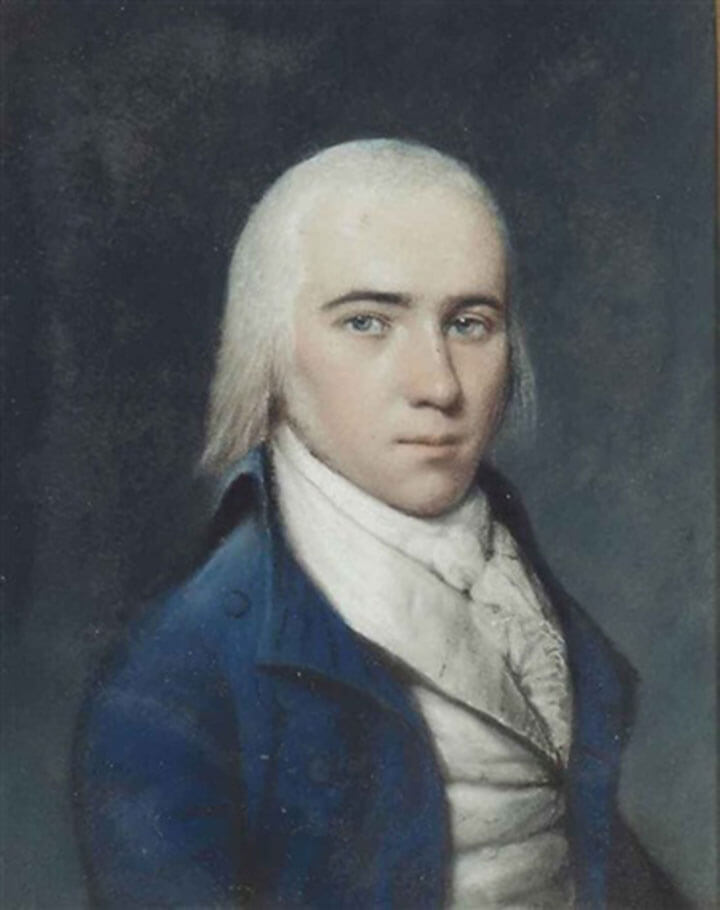Righteousness exalts a nation,
but sin is a reproach to any people.
Proverbs 14:34
It was a rain drenched Thursday, May 3, 1787, as thirty-six year old James Madison stepped down from the New York-Philadelphia-Flier stagecoach. As a Virginia delegate to the Constitutional Convention he arrived early in Philadelphia. He was in chronic poor health, weighed barely one hundred pounds, but would be remembered as the Father of the Constitution and author of the Bill of Rights.
As Madison waited for a quorum, he put on paper an initial draft for a constitution that would eventually became both the agenda for discussion and the framework for a “government of the people, by the people, and for the people.” There was a sense in which Madison had spent his life preparing for those epic days in Philadelphia. He was a studious, diligent soul who had devoted much of his life to the study of ethics and virtue. He stayed on after graduation from Princeton so John Witherspoon, a Presbyterian minister and signer of the Declaration of Independence, could tutor him in Hebrew and ethics.
Then, for the next two years Madison absorbed every book on the history of nations and government that Thomas Jefferson was sending to him from France. He wanted to know more about the workings of a good and virtuous government. But no sooner was the Constitution adopted than Madison knew his work was just beginning. The Constitution had to be ratified by the states for it to be a true expression of a government of, by, and for the people.
So Madison, along with Alexander Hamilton and John Jay, began writing The Federalists Papers to explain the principles of the Constitution to the people. Soon Madison was standing before Virginia’s ratifying convention pleading not only for the Constitution, but also pleading for virtue from the citizenry:
Is there no virtue among us? If there be not virtue, we are in a wretched situation. No theoretical checks — no form of government can render us secure. To suppose that any form of government will secure liberty or happiness without any virtue in the people, is a chimerical idea. If there be sufficient virtue and intelligence in the community, it will be exercised in the selection of these men. So that we do not depend on their virtue, or put confidence in our rulers, but in the people who are to choose them.
Madison knew his Bible well (in its original languages), and he knew history and people. He was sure that without virtue among the people “no form of government” or “rulers” could secure freedom and justice. Does not Madison still speak to us today? And the wise man of Proverbs in today’s scripture does as well: “Righteousness exalts a nation, but sin is a reproach to any people.” Old Testament theologian William McKane looks at this scripture text and says unsparingly, “A land gets the statesman it deserves.”
The growing coarseness of our culture leads some to think of an earlier time, the decay and fall of Rome. Thus, various Christian thinkers are putting forth “options” for responding to what they fear is an impending dark age. There is the Benedict Option, the Augustinian Option, the Gregorian Option, the Anabaptist Option, and other options for trying to stem the tide.
Alasdair MacIntyre is a philosopher and ethicist who, in his 1981 book After Virtue, drew comparisons between the “turning point” for ancient Rome and the “turning point” for American culture then. In response he put forth what might be called the MacIntyre Option:
What matters at this stage is the construction of local forms of community within which civility and the intellectual and moral life can be sustained through the new dark ages which are already upon us. And if the tradition of the virtues was able to survive the horrors of the last dark ages, we are not entirely without grounds for hope. This time however the barbarians are not waiting beyond the frontiers; they have already been governing us for quite some time. (Emphasis added)
Madison and Macintyre would agree that remedy will not come from Washington. Rather, remedy will come from restored virtue among the people, and from ‘local forms of community’ where a ‘tradition of the virtues’ is lived and passed on. Nothing fancy! Nothing novel or new! Just doubling down in our homes and in our churches in doing and teaching the things Jesus taught us long ago:
“Everyone then who hears these words of mine and acts on them will be like a wise man who built his house on rock. The rain fell, the floods came, and the winds blew and beat on that house, but it did not fall, because it had been founded on rock.” (Matthew 7:24-25)
Grace and peace,
Tim



